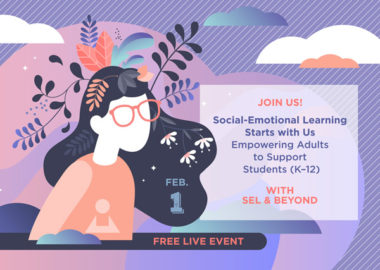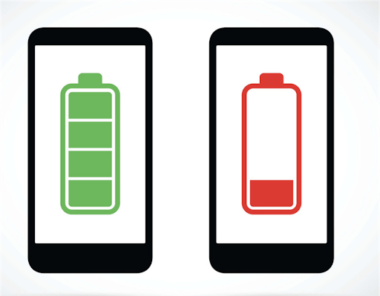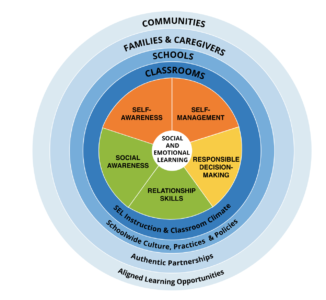

THANK YOU.
No one signed up for Pandemic Principal-ing.
For students to succeed, we need to focus on the well-being of educators. For educators to succeed, we need to focus on the well-being of administrators. It’s all connected.
What Is Social and Emotional Learning (SEL)?
CASEL defines SEL as “the process through which children and adults understand and manage emotions, set and achieve positive goals, feel and show empathy for others, establish and maintain positive relationships, and make responsible decisions.” Sounds pretty good, right?
While we’ve been focused on SEL for students, we now realize SEL starts with adults. SEL supports administrators to strengthen practices that promote equity by offering a way for adults to examine their identity, bias, and mindset.
“The more that principals can model empathy and self-awareness, the more they can share their journey with teachers and be vulnerable, the more it’s going to encourage educators to engage in the work.”—Megan Marcus, FuelEd Founder
As a school leader, you set the tone for your team. Your ability to model and promote SEL skills will have a big impact on those around you.
Now, don’t freak out. This does not mean that you have to become a SEL expert overnight. You do not have to be perfect to set a good example. In fact, you’ll actually be more relatable if you aren’t perfect.
For more on SEL, check out the two-part Empowering Administrators through Social and Emotional Learning workshop and more in our SEL Toolkit!
CASEL identifies SEL’s five core competencies as:
- Self-Awareness: The ability to understand one’s own emotions, thoughts, and values and how they influence behavior across contexts.
- Self-Management: The ability to manage one’s emotions, thoughts, and behaviors effectively in different situations and to achieve goals and aspirations.
- Social Awareness: The ability to understand the perspectives of and empathize with others, including those from diverse backgrounds, cultures, and contexts.
- Relationship Skills: The ability to establish and maintain healthy and supportive relationships and to effectively navigate settings with diverse individuals and groups.
- Responsible Decision-Making: The ability to make caring and constructive choices about personal behavior and social interactions across diverse situations.
Let’s take a closer look at how you can put these skills into practice.
Teachers appreciate administrators who:
Check In (Self-Awareness)
Teachers appreciate when their admin “checks in” and “checks on” them. After all, we are people first and educators second. Too often the requisite “How are you?” elicits an automatic “I’m fine” response.
It’s important to let educators know that it’s OK to not be OK.
For a strategy to check in with someone about how they are really doing, see below.
Manage Their Emotions (Self-Management)
At times, it can be very easy to get flooded by feelings and swept away by emotions. Teachers appreciate leaders who can effectively manage their emotions and respond rather than react.
How do you take care of yourself when things are difficult? What helps you manage your emotions?
Express Empathy (Social Awareness)
Teachers are stressed and tired. They need their leaders to show up and try to see things from their perspective. That’s where empathy comes in. Empathy is the ability to understand and respond to the feelings of others. This includes being curious about understanding another’s perspective and looking beyond your own point of view to see something as they do.
Build a Culture of Connectedness (Social Awareness)
Create situations for staff to connect with one another. They need time to talk and catch up with each other.
“There are no good schools without good principals. It just doesn’t exist. And where you have good principals, great teachers come, they stay, they work hard, and they grow.”—Arne Duncan, Former U.S. Secretary of Education
Are Instructional Leaders (Relationship Skills)
Educators respect administrators who are themselves good teachers. Whether you come in to read a story to kindergartners or participate in a Socratic seminar in a high school classroom, it’s important to take an active part in the school community.
Solicit Feedback (Responsible Decision-Making)
How do you know that you are giving teachers what they need to be successful? This is especially helpful in balancing the power dynamic since administrators frequently evaluate teachers. Asking for feedback shows people that you value their opinion. Feedback enables improvement, and we can’t improve what we can’t see!
Show Love (Relationship Skills)
People appreciate being appreciated. Recognition is essential to creating a positive school climate. You may be surprised to find how much simple, genuine expressions of gratitude inspire your team to do their best.
Facilitate opportunities for them to “show some love” to each other so they can see “what’s going right” at any moment.
Students and adults learn better when they are engaged. We say that professional development should be FUN! Here are a few strategies administrators can use to engage with their team.
Strategy: What’s Your Battery Life?
This is an easy and effective way to check in with staff.


Procedure: Ask your staff to identify what their battery life is on a scale of 0 to 100%. This information will help guide further interactions, and your team will appreciate being asked.
Strategy: Show Some Love
This is a great strategy for a virtual setting. It can be used to open or close a meeting.
Procedure: Encourage the team to “Show Some Love” to at least three other team members in the chat using the @ symbol.
Example: @MrRoeser thank you for sharing your slides with me! You’re the best.
It’s also fun to pair this activity with music. (We are big fans of Tina Turner’s “The Best” as an homage to colleagues.)
Teachers love this strategy because they can easily translate it into their own teaching practice.
Strategy: Shout Out


This is the in-person version of Show Some Love.
Procedure: Encourage the team to “Shout Out” colleagues by acknowledging or thanking them. Explain that you can shout out individuals, groups, or the whole school.
Example: “I would like to shout out my grade-level team for being so supportive.”
“I would like to shout out Allison for sharing her lessons with me. Thank you so much.”
The more administrators are able to improve their own social and emotional competencies, the better able they will be to support teachers and students in developing their own.
Follow us @SELandBeyond
Works Cited:
https://www.gse.harvard.edu/news/uk/21/03/teacher-student-relationships-matter
See also:
Also, for more on SEL, check out these blogs:
- Introduction to Social and Emotional Learning
- SEL & Beyond: Self-Awareness
- SEL & Beyond: Self-Management
- SEL & Beyond: Social Awareness
- SEL & Beyond: Relationship Skills
- SEL & Beyond: Responsible Decision-Making
About the Authors


Trisha DiFazio is an author, education consultant, and former adjunct professor in the Rossier School of Education at the University of Southern California (USC). She is passionate about empowering teachers and students around Social and Emotional Learning, Cultural Responsiveness, and Mindfulness.


Allison Roeser, Master of Health Science (MHS) and Professional Certified Coach (PCC), has almost two decades of experience working with leaders in education, child welfare, and social change. As an avid learner of mindfulness practices, Allison has seen firsthand the value of integrating self-awareness into professional and personal development.


